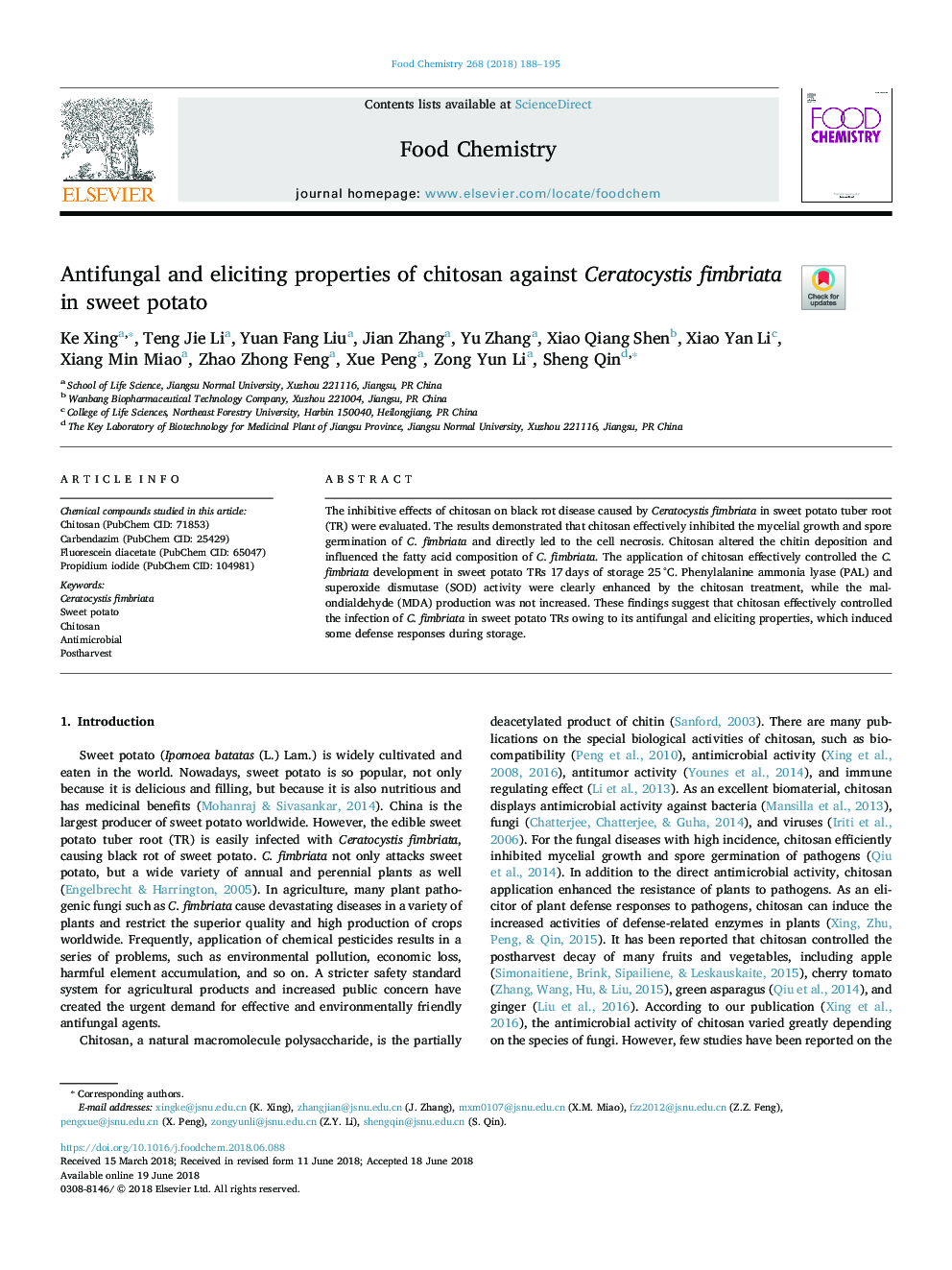| Article ID | Journal | Published Year | Pages | File Type |
|---|---|---|---|---|
| 7584273 | Food Chemistry | 2018 | 8 Pages |
Abstract
The inhibitive effects of chitosan on black rot disease caused by Ceratocystis fimbriata in sweet potato tuber root (TR) were evaluated. The results demonstrated that chitosan effectively inhibited the mycelial growth and spore germination of C. fimbriata and directly led to the cell necrosis. Chitosan altered the chitin deposition and influenced the fatty acid composition of C. fimbriata. The application of chitosan effectively controlled the C. fimbriata development in sweet potato TRs 17â¯days of storage 25â¯Â°C. Phenylalanine ammonia lyase (PAL) and superoxide dismutase (SOD) activity were clearly enhanced by the chitosan treatment, while the malondialdehyde (MDA) production was not increased. These findings suggest that chitosan effectively controlled the infection of C. fimbriata in sweet potato TRs owing to its antifungal and eliciting properties, which induced some defense responses during storage.
Keywords
Related Topics
Physical Sciences and Engineering
Chemistry
Analytical Chemistry
Authors
Ke Xing, Teng Jie Li, Yuan Fang Liu, Jian Zhang, Yu Zhang, Xiao Qiang Shen, Xiao Yan Li, Xiang Min Miao, Zhao Zhong Feng, Xue Peng, Zong Yun Li, Sheng Qin,
